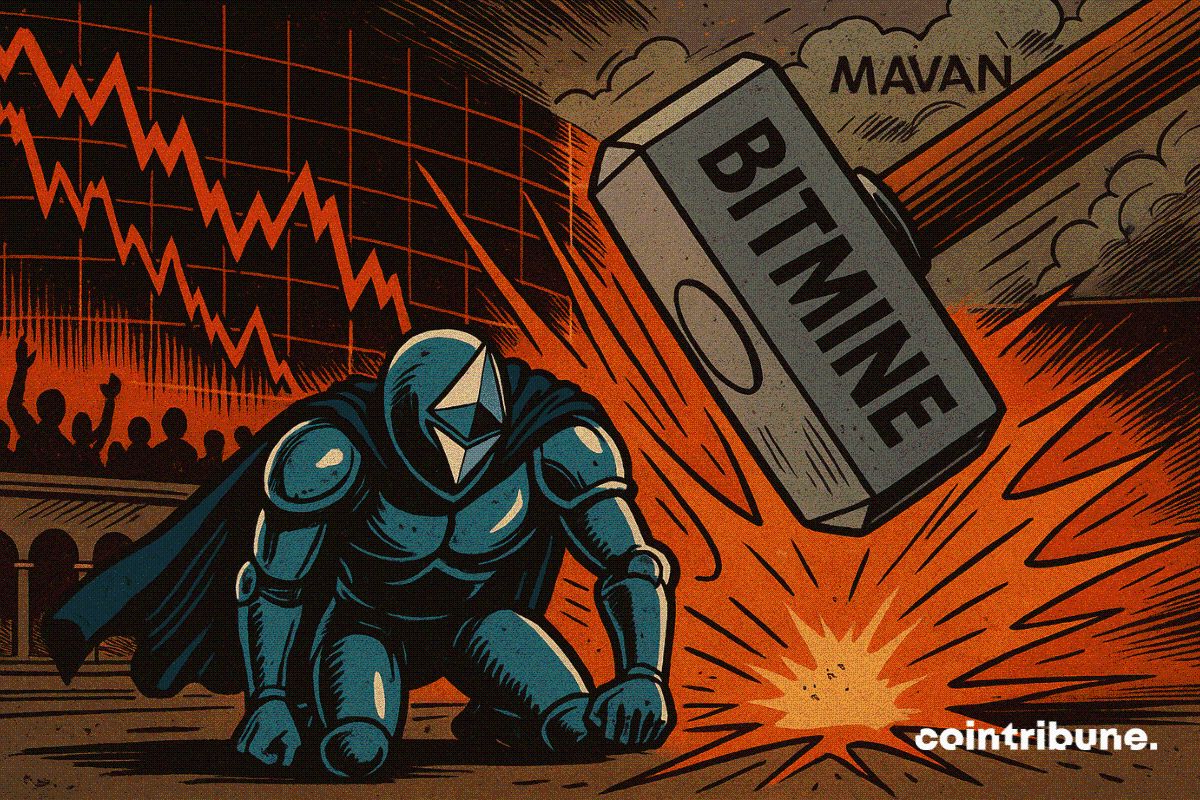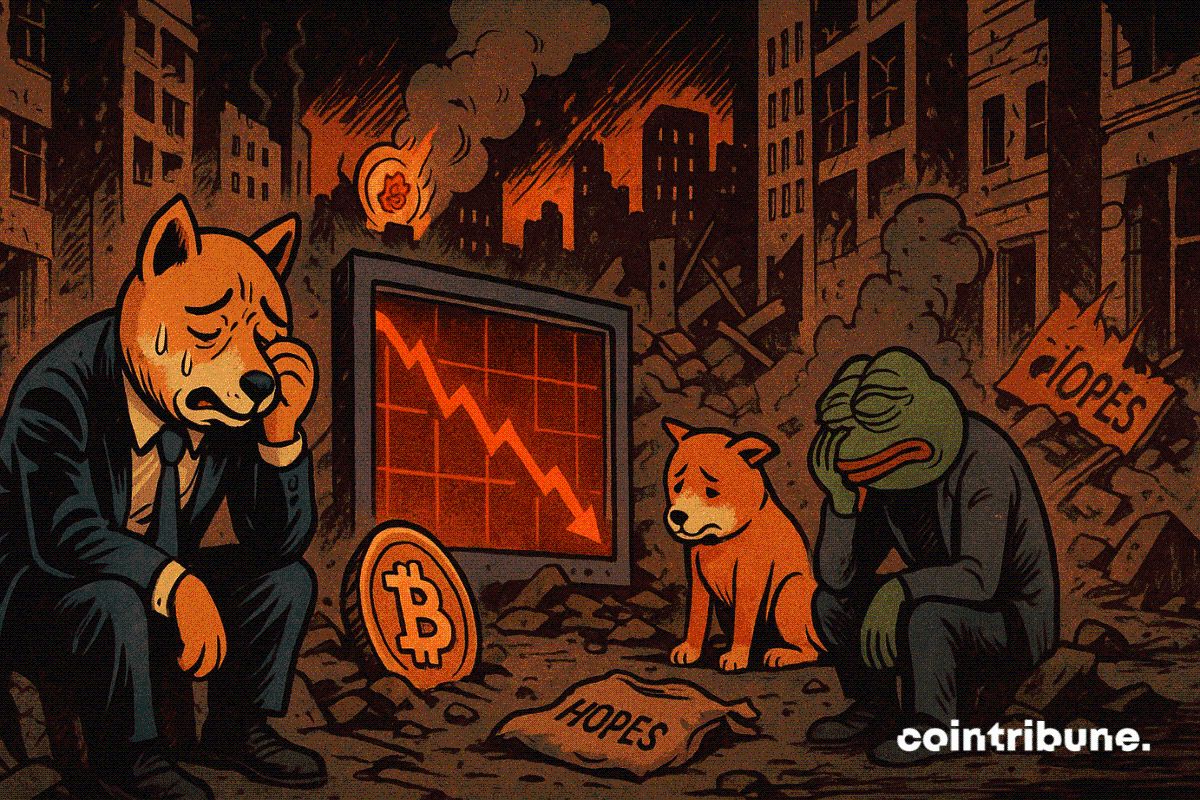The Rise of Crypto-Criminal Ecosystems and Regulatory Risks in Emerging Markets
- Emerging markets like Nigeria, Vietnam, and Ukraine see rapid crypto adoption driven by corruption and inflation, but face heightened risks of fraud and illicit finance. - Nigeria’s 2025 crypto regulations and Vietnam’s legal framework aim to curb risks, yet enforcement struggles persist due to systemic governance weaknesses. - Ukraine’s regulatory vacuum enables $24M/month in crypto-fueled hybrid warfare funding, highlighting vulnerabilities in investor protection and anti-corruption measures. - Global
The intersection of institutional corruption, crypto adoption, and investor protection in emerging markets has become a critical focal point for global investors. As cryptocurrencies gain traction in regions with weak governance, they simultaneously enable financial inclusion and create fertile ground for criminal exploitation. This duality underscores a paradox: digital assets are both a lifeline for the unbanked and a tool for money laundering, fraud, and systemic risk.
The Corrosion of Trust and the Rise of Crypto Adoption
Emerging markets with high corruption indices have seen explosive crypto adoption. Between 2023 and 2025, six of the top ten countries in the Global Crypto Adoption Index were in Central & Southern Asia and Oceania, including India, Nigeria, Vietnam, and Ukraine [1]. In these regions, cryptocurrencies offer a decentralized alternative to traditional banking systems eroded by corruption and inflation. For instance, Nigeria’s peer-to-peer crypto transactions now dominate wealth transfers, while Ukraine’s population increasingly uses stablecoins to hedge against currency depreciation [2].
However, this adoption is not without peril. The same distrust in institutions that drives crypto adoption also weakens regulatory enforcement, creating gaps that criminals exploit. In Ukraine, unregulated crypto infrastructure has enabled Russian operatives to fund hybrid warfare and recruit youth for sabotage, siphoning $24 million monthly through money-mule schemes [3]. Similarly, Vietnam’s pre-2025 “gray area” status for crypto allowed scams like the Maxx Group and TCIS to defraud investors of millions [4].
Regulatory Responses: A Mixed Bag of Progress and Gaps
Emerging markets are responding to these risks with varying degrees of success. Nigeria’s 2025 Investments and Securities Act formalized crypto as a security under the SEC, introducing licensing for Virtual Asset Service Providers (VASPs) and AML/KYC compliance [5]. This framework, enforced by the CBN and EFCC, reflects a proactive stance against cybercrime. Yet, Nigeria’s strict regulations have also driven demand for compliance technology and cyber insurance, highlighting the tension between security and accessibility [5].
Vietnam, by contrast, only passed its first crypto-specific law in 2025, classifying digital assets as legal property and establishing a two-tier regulatory system [6]. While this aims to align with FATF standards and protect 21 million crypto holders, enforcement remains a challenge. The country’s 83rd rank on the Corruption Perceptions Index (CPI) underscores systemic governance weaknesses, with anti-corruption campaigns like Nguyen Phu Trong’s “blazing furnace” failing to address deep-seated issues [7].
Ukraine’s regulatory vacuum exemplifies the risks of inaction. Despite proposed legislation, the absence of a legal framework has left the sector open to exploitation. Experts warn that without robust anti-corruption measures, Ukraine’s crypto market could become a global hub for illicit finance [3].
Investor Protection: A Fragile Frontier
Investor protection in these markets is further complicated by institutional corruption. In Nigeria, for example, the judiciary’s susceptibility to political influence undermines legal certainty for crypto disputes [8]. Similarly, Vietnam’s opaque approval processes for business projects, even in the crypto sector, deter both domestic and foreign investment [7].
The data paints a stark picture: over 559 million global crypto users by 2025, with young adults (25–34) driving adoption [1]. Yet, in markets like Ukraine and Vietnam, this demographic is disproportionately vulnerable to scams and fraud due to weak enforcement.
Conclusion: Balancing Innovation and Risk
For investors, the lesson is clear: crypto adoption in emerging markets is a double-edged sword. While it democratizes access to finance, it also amplifies risks tied to institutional fragility. Regulatory frameworks must evolve to address both criminal exploitation and investor protection, prioritizing transparency, KYC protocols, and judicial independence.
The path forward requires collaboration between governments, global institutions, and the private sector. Without it, the promise of crypto in emerging markets may remain shackled to the same corruption it seeks to escape.
Source:
[1] Global Crypto Adoption Report 2025
[2] Crypto Projects and Adoption in Emerging Markets
[3] Crypto crimes cost Ukraine billions annually in lost revenue
[4] Vietnam to Regulate Crypto Exchanges Amid Rising Scams and Investor Demand
[5] Is Crypto Legal in Nigeria? Regulations & Compliance in ...
[6] Vietnam Passes Digital Law Recognizing and Regulating Crypto Assets
[7] Diverging from the "Blazing Furnace": Vietnam's Opportunity to Attract More U.S. Investment
[8] The Cryptocurrencies in Emerging Markets: Enhancing
Disclaimer: The content of this article solely reflects the author's opinion and does not represent the platform in any capacity. This article is not intended to serve as a reference for making investment decisions.
You may also like
What are the five major changes that Beam Chain will bring to Ethereum?
Beam Chain is not a new blockchain in the literal sense, but rather a new infrastructure built within the Ethereum mainnet that will significantly enhance the transaction speed, security, and efficiency of the L1 mainnet.

Staking Ethereum: BitMine's Ultimate Plan to Survive the Market

Solana and XRP ETFs resist as Bitcoin faces record withdrawals

Brutal Correction Hits Speculative Crypto Sectors
